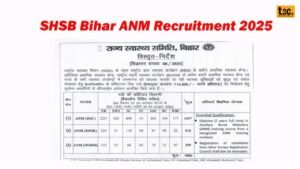Is right to information is a fundamental right in India?

Is right to information is a fundamental right in India? Yes, the Right to Information (RTI) is considered a fundamental right in India under Article 19(1)(a) of the Constitution, which guarantees the Right to Freedom of Speech and Expression. The Supreme Court of India has interpreted this article to include the right to access information, as it is essential for a functioning democracy.
Legal Basis of RTI as a Fundamental Right:
- Supreme Court Judgments:
- The Supreme Court has repeatedly held that RTI is a part of Article 19(1)(a) because an informed citizenry is necessary for free speech and democratic governance.
- In cases like Union of India v. Association for Democratic Reforms (2002) and State of U.P. v. Raj Narain (1975), the Court emphasized that the public has a right to know about the government’s functioning.
- RTI Act, 2005:
- The Right to Information Act, 2005 provides a statutory framework for citizens to exercise their fundamental right to information.
- It enables citizens to seek information from public authorities and ensures transparency and accountability in governance.
Limitations on RTI:
Though RTI is a fundamental right, it is not absolute and has reasonable restrictions under Article 19(2) to protect:
- National security
- Public order
- Sovereignty and integrity of India
- Privacy of individuals
- Confidentiality in sensitive government matters
In summary, while RTI is a fundamental right, it is exercised through the RTI Act, 2005, which provides mechanisms to access information while ensuring necessary restrictions for national and public interests.
How to file RTI?
Filing an RTI (Right to Information) application in India is a straightforward process. You can file it online or offline to seek information from a public authority under the RTI Act, 2005. Here’s how:
1. Identify the Public Authority
- Determine the government department that holds the information you need.
- Visit the official website of the department or check the RTI portal for details.
2. Draft the RTI Application
Essential Details to Include:
- Address it to the Public Information Officer (PIO) of the department.
- Mention “Seeking Information under RTI Act, 2005” at the top.
- Clearly state your questions (specific, concise, and numbered).
- Provide your name, address, contact details, and date.
- Mention the mode of response (email/post).
- Pay the RTI fee (₹10 for most cases).
3. Mode of Filing RTI
A. Online (For Central Government Departments)
- Visit RTI Online Portal.
- Click on “Submit Request” and select the relevant department.
- Fill in the required details and upload supporting documents (if needed).
- Pay ₹10 using debit card, credit card, UPI, or net banking.
- Submit the application and note down the reference number for tracking.
B. Offline (For Both State & Central Departments)
- Write the RTI application on plain paper or use a prescribed form (if available).
- Attach a postal order, demand draft, or court fee stamp for ₹10 as the application fee.
- Send the application via Registered Post/Speed Post to the concerned PIO.
- Keep a copy of the application and postal receipt for future reference.
4. Response & Appeal Process
- The PIO must respond within 30 days (48 hours for life & liberty-related matters).
- If the department denies information or fails to respond, submit a First Appeal to the Appellate Authority within 30 days.
- If unsatisfied, escalate to the State/Central Information Commission via a Second Appeal.
Additional Notes:
- Some State Governments have their own RTI portals for online applications.
- Fees may be waived for BPL (Below Poverty Line) applicants with proof.
- The government exempts certain sensitive information, such as matters related to national security and privacy, from disclosure.
Stay tuned on our website as if any official information pops up then we will update you in minutes! If you want all the latest updates on time then join our student community on WhatsApp!
Choose the right career yourself by booking personal guidance from professionals on Mytagapp.com









